At Multiplai we believe in a human-centric approach to AI. We understand that we can gain significant benefits by using AI, but we also understand the risks that it represents. Hence we created this document, and we use it to guide us in our AI journey.
We believe that every company and organization must have such a document, that is not just stored in a file somewhere but is a living breathing document that helps guide everyone in the organization’s eco-system, based on the organization’s core values.
If you want to use our guidelines and principles as a baseline for your’s you can download an editable copy here.
Here are the AI guidelines and principles we operate by:
Human-Centered AI Principles
At Multiplai, we believe artificial intelligence has immense potential to positively impact human ability, productivity, and well-being. To realize this potential, we are committed to a human-centered approach to AI guided by these core principles:
- AI should assist and augment human capabilities, not replace humans
- AI should be used to maximize productivity and performance without sacrificing quality
- AI should create more opportunities for people than it eliminates
- AI should improve efficiencies to enable people to do higher-value work and lead more fulfilling lives
Accountability for AI Decisions and Actions
We recognize that we are ultimately accountable for the content, decisions and actions of any AI systems we use. We will maintain human oversight and not rely solely on AI to make critical decisions, especially those that significantly impact individuals. If issues arise from our use of AI, we take full responsibility to address and remedy them.
Disclosure of AI Use
We believe in being transparent about how and when we are using AI technologies. We will proactively disclose to relevant stakeholders, including employees, customers, and partners:
- The types of AI systems being utilized
- The purposes for which AI is being applied
- Limitations and potential risks of the AI technologies in use
We will collaborate with stakeholders to determine appropriate use cases and implementation plans for AI.
A list detailing how we use AI today is available at the end of this document.
Quality Control and Fact-Checking
To uphold our quality standards, we will institute robust quality control measures and fact-checking processes for work produced using AI systems. This includes:
- Having subject matter experts review AI-generated output for accuracy, clarity and completeness
- Verifying factual claims against authoritative sources
- Implementing feedback loops to improve AI models based on quality assessment findings
Protecting Sensitive Information
We will establish strict protocols to safeguard confidential and sensitive information in our use of AI systems. Employees will be trained on proper data handling practices, including:
- Never input protected personal information, trade secrets, or non-public data into AI tools, unless such tools were clearly approved for that by our IT/security team.
- Anonymizing data used to train AI models, or on non-approved tools
- Following secure data storage and transmission procedures
Ethical Use of AI
We are committed to using AI in an ethical manner that respects the rights and interests of all stakeholders. This means:
- Never using AI to create false or misleading representations of our products, services, or company. We will not employ AI to generate fake reviews, testimonials, or marketing content intended to deceive consumers.
- Never using AI in manipulative ways with employees, customers, partners or other stakeholders. We will not utilize AI to exploit psychological vulnerabilities, spread disinformation, or unduly influence decisions against someone’s best interests.
- Never allowing AI to impersonate humans in interactions without clear disclosure. In any customer service, sales, or other communications scenario where AI may be perceived as a human representative, we will provide unambiguous indication that the user is interacting with an AI system.
- Never deploying AI with the purpose of violating laws, infringing on copyrights, or causing harm to individuals or society. We will evaluate potential adverse impacts and implement safeguards to mitigate risks of AI systems being misused for illegal or malicious purposes.
- Never sharing AI-generated content without proper attribution. The list at the end of this document clearly states how we use AI-generated text, imagery, audio, video or other media. We will disclose the role of AI in the creation process as appropriate to the context in specific distribution channels.
- Never allowing AI systems to make high-stakes decisions about individuals without human oversight. AI may assist and inform determinations that significantly impact people’s lives or livelihoods, but a human must always be the ultimate decision-maker accountable for the outcome.
We recognize that AI ethics is a complex and evolving field where challenging situations will arise that require nuanced analysis. When faced with ethical dilemmas regarding the use of AI that are not clearly addressed by this policy, employees should consult with [relevant ethics committee, legal counsel, or leadership team] for guidance.
Our commitment is to strive to use AI in ways that are lawful, ethical, and aligned with our mission and values. Through ongoing education, discussion, and iterative refinement of our practices, we aim to be a leader in the responsible development and application of AI technologies.
Responsible AI Development
We will follow best practices for the responsible design, development and deployment of AI systems. This includes:
- Defining clear objectives and success metrics aligned with our values
- Assembling diverse, multidisciplinary teams to work on AI projects
- Conducting proactive risk assessments to identify and mitigate potential harms (internal and external)
- Instituting governance structures to ensure accountability
- Enabling explainability and audibility of AI systems
Avoiding Bias and Discrimination
We recognize the risk of AI systems perpetuating or amplifying human biases and resulting in discriminatory impacts. To mitigate this risk, we will:
- Use inclusive and representative training data
- Test for and correct biased outcomes throughout the AI development and deployment process
- Welcome human appeals of AI outputs that materially impact individuals, or do not align with the company’s core values
Transparency on AI Capabilities and Limitations
We will clearly communicate the capabilities and limitations of our AI systems to manage expectations and avoid over-reliance or misuse. This includes:
- Providing documentation on intended use cases, performance benchmarks, and known constraints
- Delivering training to employees, customers and partners on the proper use of AI tools
- Not overstating or misrepresenting the functionality of AI systems in our communication with customers, prospects, and anyone else in our ecosystem.
Monitoring and Refinement
We will continuously monitor the performance and impacts of AI systems after deployment, and make adjustments as needed. This includes:
- Tracking pre-defined metrics to assess model drift and deterioration over time
- Collecting feedback from stakeholders on their experiences with AI tools
- Updating models and retraining on new data to improve performance
- Maintaining version control and the ability to roll back or deactivate underperforming models
Continuous Learning and Skill Development
We recognize that AI technologies are rapidly evolving, requiring ongoing learning and skill development to use them effectively and responsibly. We are committed to being a learning organization that invests in our employees’ AI literacy and capabilities. This includes:
- Providing access to AI training programs and educational resources
- Encouraging employees to dedicate time to learning about AI through courses, workshops, conferences, and on-the-job experimentation
- Fostering a culture of knowledge sharing about AI best practices and lessons learned
- Rewarding employees who develop AI expertise and lead AI initiatives
The company will allocate budget and resources to support continuous AI learning and skill development opportunities for all employees.
Encouraging Innovation with AI
We encourage the innovative use of AI technologies within the parameters of this policy to drive efficiency and augment human capabilities. Employees are empowered to experiment with approved AI tools to develop new products, services, and processes that benefit our stakeholders. Successful applications of AI that unlock value will be recognized and rewarded.
Emphasizing Human Relationships
While we embrace AI to enhance our work, we must never lose sight of the paramount importance of human relationships. In an age of artificial intelligence, authentic human connection, collaboration, and community are more essential than ever.
We expect employees to prioritize cultivating relationships inside and outside the organization, including with colleagues, customers, partners, and community members. Employees should focus on active listening, empathy, teamwork, and mutual understanding.
AI should be used to free up time and energy to invest in strengthening human bonds. For example, rather than spending hours on a repetitive report, applying AI to auto-generate a draft enables an employee to prepare for an important client meeting.
Emotional intelligence, interpersonal communication, and relationship-building skills will be key hiring and training priorities to ensure our human-centered approach to AI supports our mission and values.
How we use AI today
At Multiplai we infuse AI to every process in the company if we find a way to use it effectively. Effectively means one of 3 things:
- It helps us generate more revenue, faster.
- It saves us resources (time, money, other tools, etc.)
- It allows us to provide more value.
While our use of AI grows weekly, the main categories we use AI for are:
- Ideation
- Research (Market research, tools research, news research, AI solutions research, etc.)
- Meeting summarization
- Data summarization
- Data analysis
- Business process automation
- Automated data entry to CRM
- Written Content creation (long and short form)
- Image and video generation
- Podcast planning
- Podcast production
- Personalization





